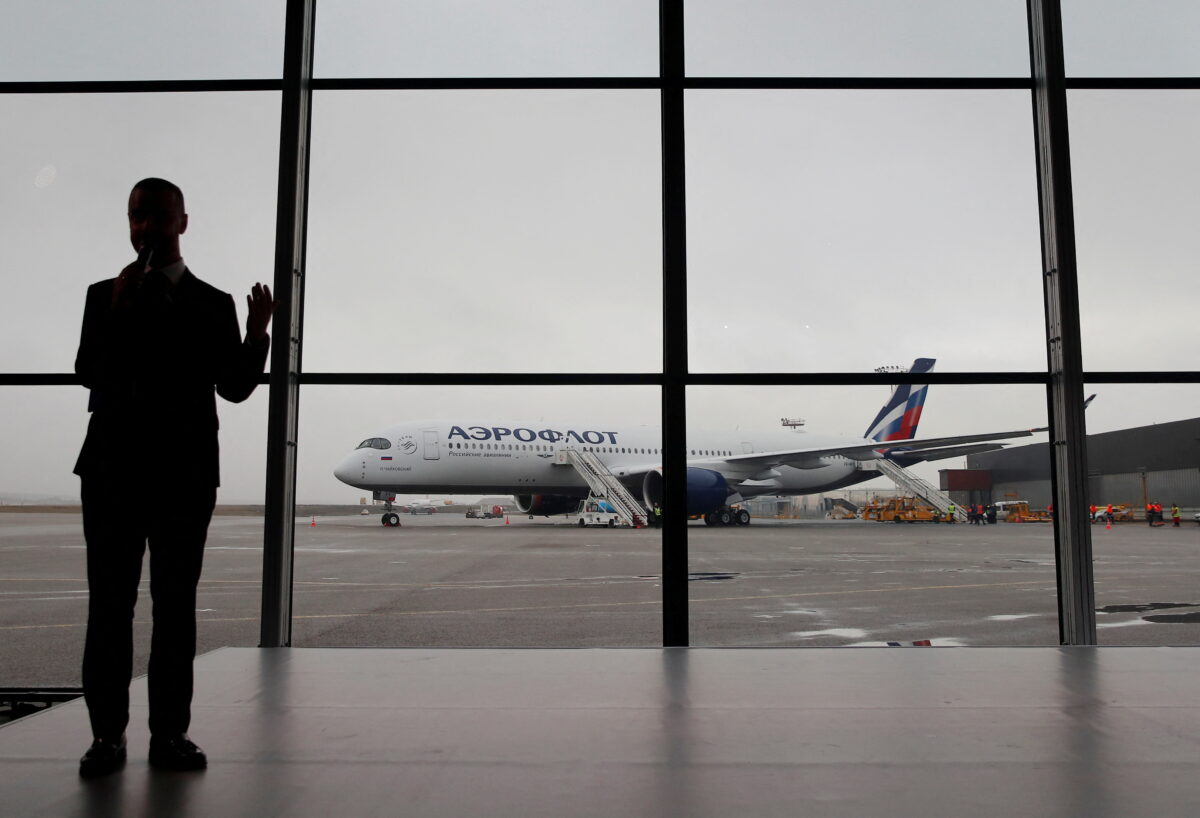
File photo shows an aircraft of Russia’s flagship airline Aeroflot during a media presentation at Sheremetyevo International Airport outside Moscow on March 4, 2020. (Rueters/Maxim Shemetov/File Photo)
By
Canada and European nations moved on Sunday to shut their airspace to Russian aircraft, an unprecedented step aimed at pressuring President Vladimir Putin to end his invasion of Ukraine, the biggest attack on a European state since World War Two.
The ban on Russian jets comes as the airline industry continues to grapple with the fallout from the COVID-19 pandemic that is still undermining global demand for travel.
Germany, Spain and France joined Britain, the Nordics and Baltic states in declaring bans on Russian use of their airspace, a major escalation in a tactic by mostly NATO allies to wage economic war against Putin in retaliation for the invasion.
The West, led by the United States, also unveiled sweeping new financial sanctions on Russia, which has called its assault on Ukraine a “special operation” to capture “neo-Nazis” who Putin says threaten Russia’s security – a charge Kyiv and Western governments say is baseless propaganda.
Russia is now widely expected to retaliate further against the air blockades and other sanctions. It has already responded to the earliest European airspace bans with its own edicts barring airlines from Britain, Bulgaria and Poland.
Without access to Russia’s airways, experts say carriers will have to divert flights south while also avoiding areas of tension in the Middle East – adding significant time and cost.
“France is shutting its airspace to all Russian aircraft and airlines from this evening on,” French Transport Minister Jean-Baptiste Djebbari said in a Twitter post, an announcement echoed across continental Europe.
Air France-KLM said it is suspending flights to and from Russia as well as the overflight of Russian airspace until further notice as of Sunday.
Earlier, Germany’s transport ministry said it would close its airspace to Russian planes and airlines for three months from Sunday, with the exception of humanitarian aid flights.
Spain has also closed its airspace to Russian aircraft.
The closure of European airspace to Russian airlines and vice versa had immediate impacts on global aviation. Air France said it was temporarily suspending flights to and from China, Korea and Japan, while it “studies flight plan options to avoid Russian airspace, in compliance with French and international authorities’ directives.”
By contrast, Swiss International Air Lines, a unit of Germany’s Lufthansa <LHAG.DE, said on Sunday that it was monitoring the situation but maintaining regular services to Russia for now.
Canada also said on Sunday it had shut its airspace to Russian aircraft effective immediately..
Air Canada “does not operate to destinations in either the Ukraine or Russia, and at all times, we comply with all airspace restrictions per Transport Canada and the FAA (U.S. Federal Aviation Administration),” the airline said.
A spokesperson for Canada’s transport minister said there are no direct flights between Russia and Canada, but several Russian flights a day pass through Canadian airspace.
Nordic countries Sweden, Finland, Denmark and Iceland also made similar announcements, following on from closures declared by Britain, Poland, Bulgaria, Czech Republic and Romania. Baltic countries Lithuania, Latvia and Estonia are also closing their airspace to Russian airliners.
“It is now absolutely necessary to proceed with further tough measures to isolate Russia,” Swedish EU Minister Hans Dahlgren told public service radio SR.
Finnish Minister of Transport and Communications Timo Harakka said on Twitter late on Saturday that Finland, which shares a long land border with Russia, was preparing a similar closure.
By Allison Lampert and David Shepardson
Reuters